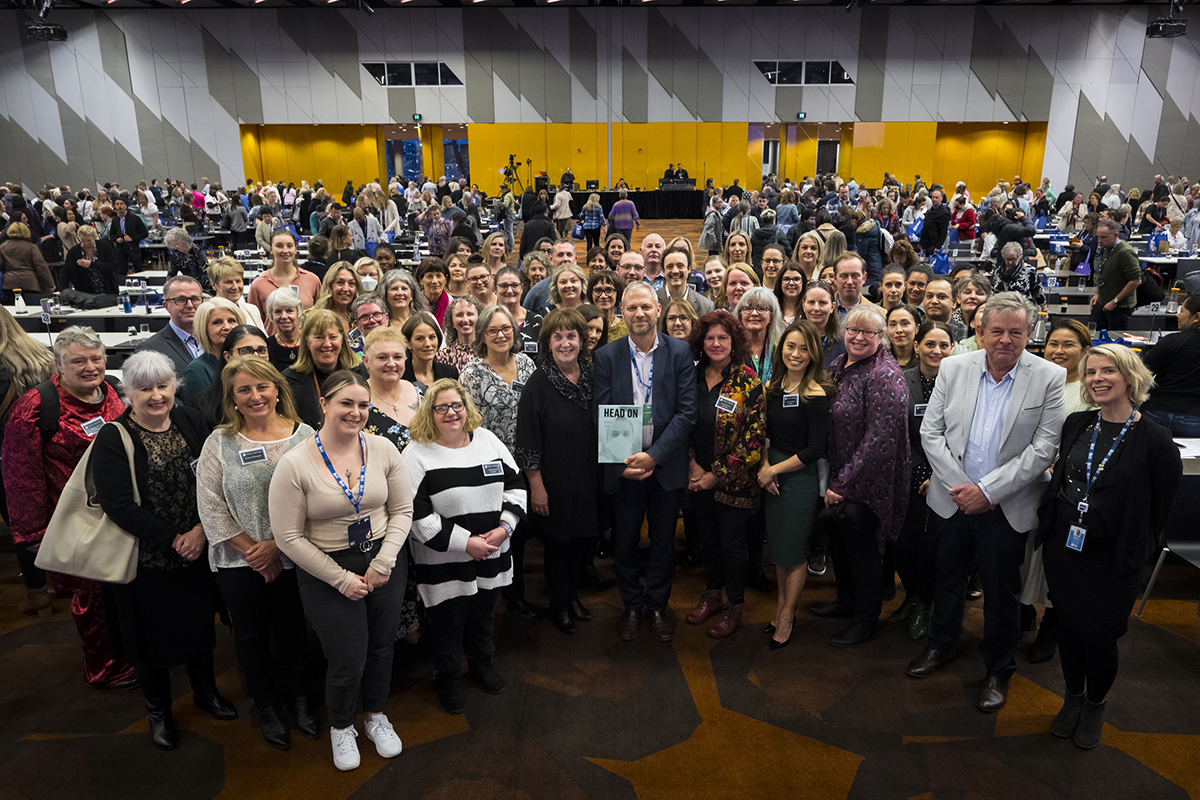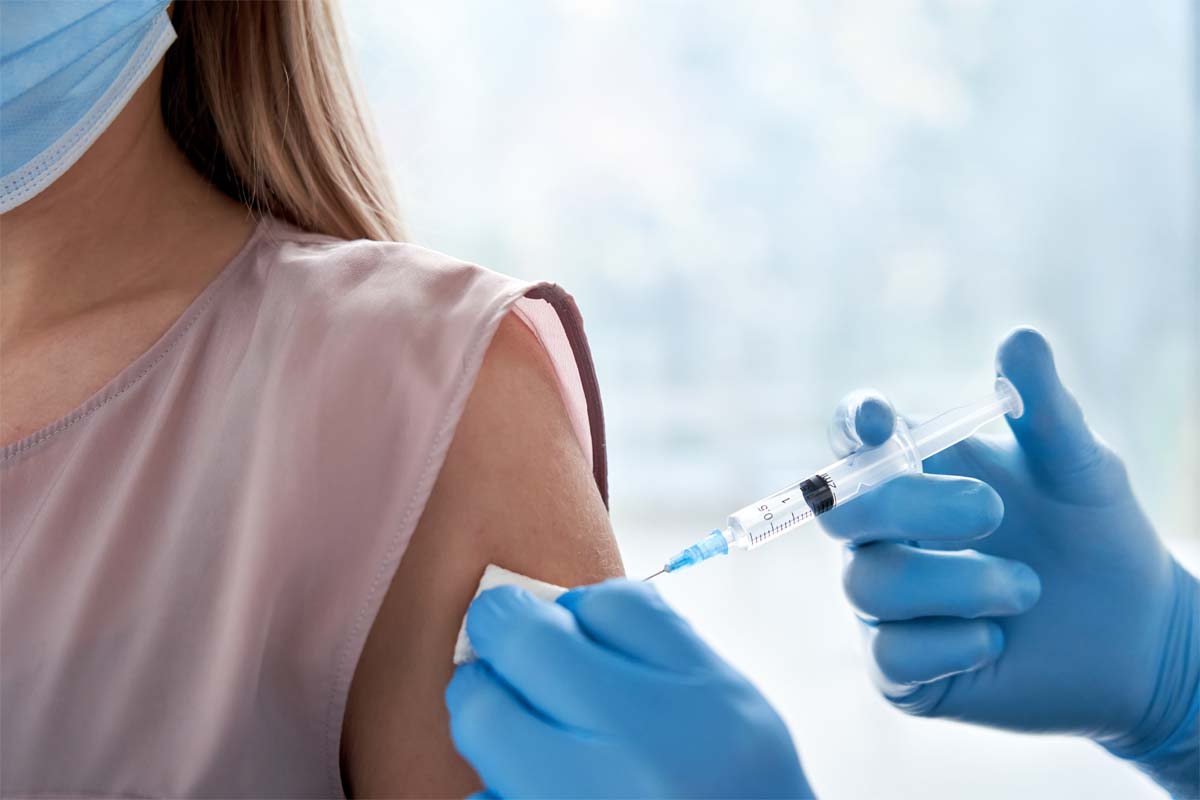
1. COVID-19 vaccination strongly recommended for healthcare workers
The Victorian Government is strongly encouraging healthcare workers to have the COVID-19 vaccination.
It is expected that the majority of healthcare workers in high-risk settings will want to have the vaccine.
The Pfizer-BioNTech vaccine received Commonwealth regulatory approval in Australia on 25 January 2021. This followed a complete assessment and approval process and meeting high safety, efficacy and quality standards. Two doses are provided at least three weeks apart. The vaccine must be stored and transported at -70°C
The public sector health workforce, including Victorian Government funded aged care staff, are part of the so-called Phase 1a priority population, and will have their vaccinations administered via one of the nine regional vaccination hubs. Some of the Phase1a workforce will receive the Pfizer vaccine, with priority given to workers at hotel quarantine and point of entry sites. These vaccinations are expected to commence in late February.
It is now more than likely that a majority of Phase1a workers will receive the AstraZeneca vaccine, due to Pfizer supply issues and the Federal Government allocation of supply between state governments and private aged care facilities. The Federal Government is responsible for the vaccination of staff working in private aged care, as well as the remainder of the population. The AstraZeneca vaccination rollout is expected to commence in March.
The following health services will operate vaccination hubs and outreach services: Western Health, Austin Health, Monash Health, Bendigo Health, Ballarat Health, Latrobe Regional Hospital, Barwon Health, Goulburn Valley Health and Albury Wodonga Health. We understand that Alfred Health will work in partnership with Monash Health to vaccinate workers in the hotel quarantine system.
Separate arrangements are being discussed with Aboriginal community-controlled health organisations.
Neither the Victorian nor Federal governments have made vaccination mandatory.
The vaccine is delivered in two doses (at least) three weeks apart. ANMF has been advised there needs to be a gap of at least two weeks between either of the COVID-19 vaccinations and the flu vaccination. Some reports suggest a four-week gap.
This will be the largest mass vaccination program in our history, and ANMF appreciates that the logistics of vaccination production, supply and administration are extraordinarily complex. Victoria is planning to build capacity rapidly, starting at up to 50,000 vaccines per week and scalable up to 250,000 per week.
We are working with the Victorian Department of Health on the elements of the vaccination rollout that we are able to influence, such as models of care, uniformity in report and recording of vaccines and workforce requirements.
Members interested in working as part of the Victorian Pfizer vaccine rollout should check the websites of the health services named above in the first instance.
Education requirements for immunisers
The Federal Government has engaged the Australian College of Nursing to create training modules that health professionals, including nurse immunisers must complete prior to providing vaccinations for COVID-19. ANMF understands that the training is only available to persons with an AHPRA registration.
Importantly, while the training is compulsory for potential COVID vaccine immunisers, Victoria’s Drugs, Poisons and Controlled Substances Act and Regulations provide separate limitations on who can legally administer the vaccine and under what circumstances. These laws are subject to any public emergency health order during the state of emergency. ANMF is in ongoing discussions with the Victorian Department of Health about this ahead of the vaccination launch date.
The Victorian Government has also created some free training modules for its Pfizer vaccine rollout.
More information on these will be made available as soon as we are notified.
Read the Victorian Government media release.
2. Which healthcare workers will be offered the COVID-19 vaccine first?
The vaccines will be available in phases, as defined by the Federal Government’s schedule which prioritises groups based on expert medical and public health advice.
The first healthcare workers to be offered the free vaccine as part of ‘Phase 1a’ are:
- hospital staff working in emergency departments, intensive care units, respiratory clinics, COVID and suspected COVID wards. This includes all staff physically associated with these clinical areas, whether they are clinicians or support staff, or students on clinical placements in those areas.
- public sector residential aged care and disability workers and residents
- staff involved in vaccination including practice nurses
- COVID-19 testing and vaccination program staff
3. Will I have to pay for the vaccine?
The vaccine will be provided at no cost.
4. Where will vaccination take place?
Those people in the ‘Phase 1a’ high risk, priority categories will be provided with a COVID-19 vaccine at Victorian public hospital vaccination hubs at Western Health, Austin Health, Monash Health, Barwon Health, Goulburn Valley Health, Latrobe Health, Bendigo Heath, Ballarat Health and Albury-Wodonga Health.
There will be some Pfizer Hub outreach and some mobile units.
5. What are the current required vaccinations for healthcare workers in Victoria?
It has long been the case that nurses and/or midwives must be vaccinated against numerous vaccine-preventable diseases. It is a prerequisite for nurses (and in some cases midwives) undergoing pre-registration placement to provide evidence of such vaccinations. These are detailed in the Victorian Department of Health publication – Vaccination for healthcare workers seventh edition: updated August 2014. These are for illnesses including:
Diphtheria-Tetanus: adults should be up to date with the routinely recommended vaccine for diphtheria-tetanus.
Pertussis (whooping cough): a single booster dose (given as dTpa vaccine) is recommended for health care workers in paediatric settings, particularly maternity and neonatal settings.
Poliomyelitis: most health care workers will have received a primary course of polio vaccine. If in doubt, three doses of IPV vaccine are offered at one-monthly intervals and a booster dose at 10-yearly intervals to staff in possible contact with poliomyelitis cases or their pathology specimens.
Measles/mumps/rubella: documentary evidence of at least two doses of a measles-containing vaccine for all staff born since 1966. Those born prior to 1966 are considered immune. If in doubt, two doses of MMR vaccine a minimum of one month apart.
Varicella (chickenpox): documentary evidence of a history of chickenpox from all health care workers. A history of chickenpox is strongly predictive of prior infection (>90 per cent). Consider serological screening of people with no definite prior history of chickenpox (approximately 50 per cent of this group will be susceptible). Document results of testing. All non-immune direct care staff should be vaccinated with varicella vaccine. Two doses of vaccine at least one month apart are required for adults.
Hepatitis B: documentary evidence of a course of either three doses of paediatric formulation hepatitis B vaccine or 2 doses of adult formulation hepatitis B vaccine (given between 11 and 15 years of age) or three doses of adult formulation hepatitis B vaccine. A course of three doses of vaccine to all non-immune health care workers. If adequate anti-HBs antibodies are not reached following the third dose, the possibility of HBsAg carriage should be investigated. Those who are HBsAg negative and do not respond should be offered either a further double dose or a further three doses at monthly intervals of hepatitis B vaccine. Further testing should be performed four weeks later. Persistent non-responders should be informed about the need for HBIg within 72 hours of parenteral exposure to hepatitis B.
Hepatitis A: staff at higher risk of occupational exposure to hepatitis A include nursing staff and other health care workers in contact with patients from Indigenous Australian communities, in paediatric wards, infectious disease wards, emergency rooms and intensive care units or who frequently attend patients in rural and remote Indigenous Australian communities.
Influenza: offer annual influenza vaccine to all staff in direct care of patients.
Tuberculosis: the DHHS Vaccination for healthcare workers seventh edition says to refer to the Australian immunisation handbook. The handbook says healthcare workers likely to encounter patients with tuberculosis, for example staff at chest clinics, are not routinely recommended to receive the BCG vaccine because the evidence of the benefit in adults is limited and the vaccine interferes with the interpretation of tuberculin skin test (TST) results.
Further information:
DHHS Vaccination for healthcare workers – seventh edition in full.
Australian immunisation handbook last updated May 2020.
6. What is ANMF’s position?
While the ‘gold standard’ is that workers should not be exposed to infectious diseases at work, this is not always possible to achieve. Hence vaccination is critical to ensure both a safe workplace for nurses, midwives and personal care workers, and for those in their care.
ANMF supports all direct care workers being vaccinated against COVID-19 (subject to any recognised medical exclusions).
ANMF supports vaccination to protect the health of nurses, midwives and carers and their patients, residents and clients.
ANMF advocates that it is vitally important employees are supported to achieve full vaccination and in circumstances where full vaccination is not possible, that an employee is not disadvantaged.
ANMF does not support punitive measures as effective means to promote vaccination.
For more information read the federal ANMF Vaccination and immunisation policy.
7. What is the Nursing and Midwifery Board of Australia’s position?
The NMBA expects all registered nurses, enrolled nurses and midwives to use the best available evidence in making practice decisions. This includes providing information to the public about public health issues.
As registered health practitioners, nurses and midwives may be the subject of a complaint to AHPRA. Any published anti-vaccination material and/or advice which is false, misleading or deceptive which is being distributed by a registered nurse, enrolled nurse or midwife (including via social media) may constitute a summary offence under the National Law and could result in prosecution by AHPRA.
The NMBA states it will consider whether the nurse or midwife has breached their professional obligations and will treat these matters seriously.
For more information read the NMBA position statement on nurses, midwives and vaccination.
What we know about the COVID-19 vaccines
The following questions and answers are based on ABC journalist Ali Moore’s 8 January 2021 interview with the head of the Therapeutic Goods Administration Adjunct Professor John Skerritt on ABC 774. The interview was about the TGA’s approval processes for the Pfizer vaccine and the Oxford-AstraZeneca vaccine. Read the full transcript.
1. The vaccines are going through an expedited Therapeutic Goods Administration approval process. Does this mean they are less safe?
Adj Prof John Skerritt says the TGA is ‘not cutting any corners’. He explained the approval process ordinarily takes place sequentially. This time the TGA has assembled teams working in parallel with each other. Staff have also worked weekends and throughout the summer holiday period. The TGA is also working with other major countries and agencies including the US Food and Drug Administration.
The TGA is approaching the approval as thoroughly as they would for any other vaccine.
Adj Prof Skerritt says Australia is also the beneficiary of the Pfizer vaccine roll out under emergency provisions in the US and the UK. Millions of people have already received the vaccines and the TGA is monitoring closely for any serious adverse actions. It has determined those with anaphylaxis should avoid the vaccine.
2. Do the vaccines stop transmission of COVID-19 or just the severity?
Adj Prof Skerritt says generally if a vaccine prevents or decreases the severity of disease it usually means transmissibility is decreased. At this stage he says ‘we simply don’t know’ and it may be some months whether any of the vaccines prevent asymptomatic transmission. This is why public health experts are saying ‘vaccines are part of the armoury’, but other infection prevention measures such as social distancing and hand hygiene will still be important.
3. Will the vaccines be effective against the new strain of COVID-19?
Adj Prof Skerritt says the vaccine data indicates the vaccines will be effective against the virus mutations and the companies, public health experts and regulators are closely watching.
4. What about the calls from some infectious disease professionals to pause the approval and use of the Oxford-AstraZeneca vaccine?
Clinical trials found the Oxford AstraZeneca vaccine efficacy is 62 per cent at the recommended dose. Trials of Pfizer and Moderna showed they have about 95 per cent efficacy.
Both the Commonwealth Chief Health Officer Professor Paul Kelly and Victoria’s Deputy Chief Health Officer Professor Allen Cheng publicly disagreed with the calls for a pause on the Oxford AstraZeneca vaccine due to claims it would not create ‘herd immunity’. Prof Cheng, an infectious diseases physician, is also a member of the Australian Government’s Australian Technical Advisory Group on Immunisation. Both Profs Kelly and Cheng support the use of the vaccine.
At a media conference on 13 January 2021 Professor Kelly said the vaccine prevented death and severe illness ‘100 per cent of the time’. The Oxford AstraZeneca vaccine is currently being manufactured in Melbourne by CSL. Read the media conference transcript.
On the same day Victoria’s Deputy Chief Health Officer Professor Allen Cheng said Australia should take advantage of all available vaccines which can protect people ‘directly and indirectly’. If you would like to know more read his 13 January Twitter thread.
Want more information?
Members are encouraged to read the researchers’ phase three clinical trials article titled ‘Safety and efficacy of the ChAdOx1 nCoV-19 vaccine (AZD1222) against SARS-CoV-2: an interim analysis of four randomised controlled trials in Brazil, South Africa, and the UK’ published in The Lancet on 8 December 2020.
Read more information about the COVID-19 vaccines and the Federal Government’s vaccine program.
The National Centre for Immunisation Research and Surveillance has a COVID-19 vaccines: frequently asked questions.


